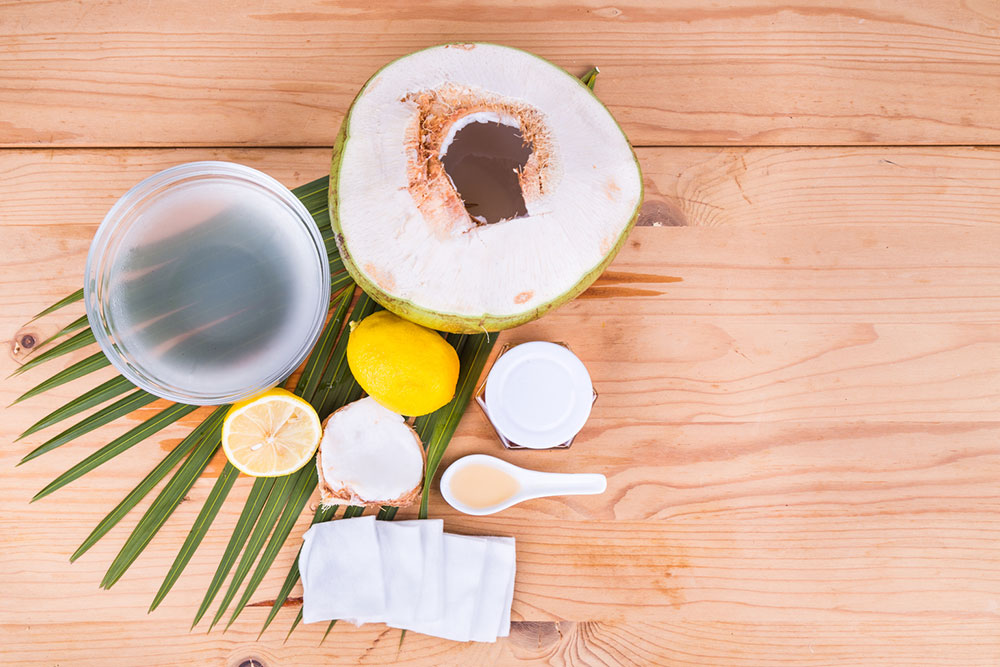Holistic Natural Strategies for Managing Uterine Fibroids Safely
Discover comprehensive natural strategies to manage and prevent uterine fibroids effectively. This guide covers dietary tips, lifestyle modifications, herbal remedies, and environmental precautions that support hormonal balance and overall reproductive health. Ideal for women seeking holistic approaches, these methods promote safe, sustainable fibroid management without side effects, enhancing quality of life and well-being.

Comprehensive Natural Methods to Alleviate Uterine Fibroids
Uterine fibroids are benign growths that develop within the muscular wall of the uterus. These non-cancerous tumors can influence the size, shape, and overall health of the uterus. Despite being benign, fibroids often cause a range of uncomfortable symptoms that can significantly impact a woman's quality of life. Interestingly, in many cases, fibroids may remain asymptomatic and go unnoticed. However, for women experiencing symptoms or wishing to prevent their development, adopting natural and lifestyle-based strategies offers an effective and safe approach.
Preventing fibroids through natural means is beneficial, whether you currently have them or want to avoid their onset. Lifestyle modifications, dietary choices, and awareness of hormonal health play pivotal roles. Emphasizing a holistic approach can help manage existing fibroids, reduce their size, or even prevent their formation altogether.
One of the key factors linked to fibroid development is blood pressure. Maintaining healthy blood pressure levels can significantly decrease the risk of fibroids. Research indicates a notable association between hypertension and fibroid growth, especially in women transitioning through menopause. Although certain risk factors such as genetics and hormonal imbalances are beyond control, managing blood pressure is an achievable and effective preventive measure.
Typical symptoms associated with fibroids include:
Heavy menstrual bleeding that can lead to anemia
Menstrual periods lasting longer than a week
Feeling bloated, full, or pressure in the pelvic area
Frequent urination due to pressure on the bladder
Pelvic pain, discomfort, or pressure sensation
Difficulty in emptying the bladder completely
Pain during sexual intercourse
Constipation or bowel discomfort
Lower back pain or leg discomfort due to nerve compression
Reproductive issues such as infertility or recurrent miscarriages
Understanding hormonal balance is crucial for preventing and managing fibroids naturally. Here are some proven strategies that focus on improving overall hormonal health and reducing fibroid growth risk:
Optimizing Your Diet for Fibroid Prevention & Management:
Limit intake of high-fat processed meats that contain unhealthy fats, preservatives, and artificial additives, as they can promote inflammation and hormonal imbalance.
Avoid non-organic dairy products, especially those with added hormones, steroids, or antibiotics, which may disrupt your hormonal balance.
Reduce consumption of refined sugars, which not only promote weight gain but also increase inflammation and hormonal fluctuation.
Cut down on refined carbohydrate sources such as white bread, pastries, and sugary snacks, as these can promote fibroid growth and exacerbate hormonal imbalance.
Additional Lifestyle Modifications for Better Health:
Limit alcohol intake, since alcohol increases inflammation, impairs liver detoxification, and influences estrogen levels, thereby potentially promoting fibroid growth.
Reduce caffeine consumption, as excessive caffeine can elevate estrogen levels and hinder liver function, contributing to hormonal imbalance and fibroid development.
Emphasizing Nutrient-Dense foods to Support Hormonal Balance:
Choose organic produce to minimize exposure to pesticides and chemicals that disrupt endocrine health.
Incorporate green leafy vegetables like spinach, kale, and Swiss chard, which supply essential vitamins and minerals that support hormonal regulation and reduce fibroid risks.
Include cruciferous vegetables such as broccoli, cabbage, and Brussels sprouts, which assist liver detoxification and help maintain estrogen levels within healthy ranges.
Consume iron-rich foods like lean meats, lentils, and dark leafy greens, vital for replenishing blood during menstruation and preventing anemia caused by heavy bleeding.
Opt for whole grains such as oats, brown rice, millet, and ragi instead of refined grains to improve digestion and stabilize blood sugar levels.
Utilizing Natural Supplements & Remedies:
Consult a healthcare professional before using herbal supplements like vitex (chasteberry), fish oil, B vitamins, progesterone creams, or milk thistle to support hormonal health and reduce fibroid size.
Essential oils such as clary sage and lavender may help balance hormones when applied topically to the lower abdomen, following proper dilution and usage guidelines.
Herbal teas made from nettle, dandelion root, or ginger can reduce inflammation and promote overall hormonal balance.
Castor oil packs applied to the lower abdomen can improve local circulation, facilitate detoxification, and potentially decrease fibroid size over time.
Avoiding Environmental and Chemical Toxins:
Reduce exposure to pesticides, synthetic fertilizers, preservatives, and harsh chemicals present in processed foods and household products. Always opt for organic options and natural cleaning supplies to mitigate toxin intake.
Regular Physical Activity for Prevention:
Engaging in consistent exercise helps regulate hormonal levels, maintain healthy weight, and improve circulation, all of which contribute to reduced fibroid risk and improved overall health.
While most fibroids are benign and asymptomatic, early consultation with a healthcare provider is essential if symptoms are present or if there’s a concern for growth. Natural therapies and lifestyle adjustments offer a safe, holistic approach to controlling or reducing fibroids without adverse effects. Embracing these comprehensive strategies can lead to enhanced well-being, hormonal balance, and better reproductive health, empowering women to manage fibroids effectively and naturally.





